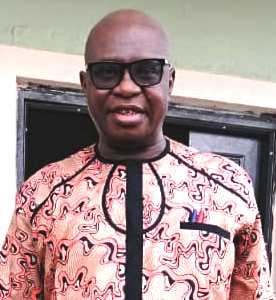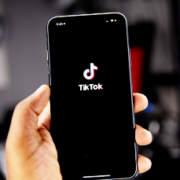By Sonny Aragba-Akpore
Apart from various polls by real and or Ponzi pollsters that dotted the social media of happenings around the country, the 2023 general elections may go down as one of the most popular events where technology played strange roles.
Strange because not every information published on social media could be verified since everyone on Social media is capable of being a publisher as the place is all comers affair with no visible guidelines and not regulated by anyone.
RELATED: OpEd: Digital universe and standardization of Metaverse
To publish, all one needs is simple. Just get a smart device, some loose data and one is on net publishing whatever one likes. Facebook, Instagram, Snapchat, WhatsApp, Telegram and others, possible explanations why so much half-truths and lies dominated the social media in the last few weeks prior to the 2023 general elections.
Influencers were very busy trying to weave narratives either to shape opinions or twist them depending on the subject they were engaged to handle and whose side they were.
Some influencers even became spin doctors spewing and weaving tales as the case may be.
But the social media did not spare anyone.
For instance, so many versions were woven around the Central Bank of Nigeria (CBN) currency redesign policy as most publishers were led to publish what ever met their fancies. Just every now and then one information came out and before people came to terms with it, the CBN denied it. There were several denials of fake news peddled by social media publishers. And we all lived with these.
The President’s wife, Aisha was also a victim of these licentious publishers as her verified social media handle was deployed in sending a press statement which was believed to be allegedly authored by the CBN extending the life’ span of the 500 and 1,000 old naira notes to May 2023.Until she denied this in strong terms, the society was almost running with it.
The matter at Supreme Court which was supposed to be subjudice had its own share as many analysts made various attempts to interpret what they believed was the position of the law.
A few days to the general elections, information went round town via social media saying telecommunications networks especially as they relate to banking operations were going to be shut down. Even bank apps and the Unstructured Supplementary Service Data (USSD) will be disabled too in order to frustrate vote buying via transaction by bank transfers.
“Technology is very good only if it is deployed for the right reason but when it becomes a tool for misinformation, and then mischief takes over. But how many will decipher this without falling prey?”
Other publishers came out with information allegedly from the Independent National Electoral Commission (INEC) that would allow voters without Permanent Voter Cards (PVCs) to vote saying they could approach electoral officials and the Bimodal Voter Accreditations System (BVAS) would verify them with accreditation by simply brandishing dubious identifications in that regard.
The INEC promptly denied this saying only those with PVCs were eligible to vote.
But social media thought otherwise.
Too many lies hiding behind technology and artificial intelligence where voices of individuals and known personalities are cloned thus creating disaffection in the polity.
Some WhatsApp platforms shared very frightening information about bank shut downs.
“Good day everyone, I trust your day is going well… Aiit I jst want to pass an important information here, so no one will be stranded due to the new development of no Cash….I got an important information from my Bank Manager today who specifically told me by Friday till Sunday evening online transfer will not be working anymore, that CBN has order (sic) all banks to shut down online transfer due to the election….so pls kindly look for cash from now till Friday bcus do not hope for transfer by weekend.”
The bankers denied this saying there was no iota of truth in this.
CBN denied this too.
The banks sent messages out to customers of early closure of business between midday and 1pm on Friday, February 24, 2023.
On the issue of network shutdown, the Nigerian Communications Commission (NCC) denied this in a statement saying:
“The attention of the Nigerian Communications Commission, NCC, has been drawn to fraudulent and misleading information circulating in some social media platforms, insinuating there is a planned shut-down of all telecom networks and relevant ICT Units, including online transfer facilities of the banks, with effect from today, February 23, 2023.
“The Nigerian public, consumers of telecommunications services, and all bank customers are advised to ignore these or similar messages that insinuate deliberate network shutdown or disruption of services in the Nigerian telecom network.
“These malicious and subversive messages originated and are being circulated by fraudsters and unscrupulous elements in the society with the intent to cause chaos and panic among the populace. “
By deploying Artificial intelligence technology, some persons caused to be circulated a meeting allegedly held by the People’s Democratic Party (PDP) presidential candidate, Alhaji Atiku Abubakar and his team on their plans to compromise the general elections.
This the party stoutly denied.
A technology expert with verse interests in Artificial Intelligence (A.I), Dr.Ndubuisi Ekekwe explained what may have happened.
In the run-up to the 2023 general elections a new kind of political propaganda started , using cutting-edge artificial intelligence technology to clone the voices of political figures.
“Social media has no regulation despite the Cybersecurity Act of 2015 and this on its own is tragic.”
The most recent example involves the former Vice President Atiku Abubakar and his running mate Governor Ifeanyi Okowa, whose voices were cloned using A.I. technology in an attempt to discourage voters before the elections .
The viral voice recording, which purported to be Atiku Abubakar making comments about INEC, went viral on social media in Nigeria, causing a stir among the electorate.
“Artificial intelligence is an incredible tool that has many useful applications, but it can also be used for nefarious purposes,” according to Ekekwe, a technology expert based in Lagos. “In this case, someone has used A.I. to clone Atiku Abubakar’s voice and create a recording that never actually happened.”
Ekekwe went on to explain that A.I. voice cloning technology has advanced rapidly in recent years, and it is now possible to create convincing fake recordings that are almost indistinguishable from the actual voices.
On Facebook, crowds were assembled for candidates through photo shopping to look real.
Too many lies were told not by candidates per se but by handlers and spin doctors to hoodwink and mislead people through technology.
Unsuspecting Nigerians believed thus adding to the confusion and nightmares.
WhatsApp groups spread half-truths and lies thus misleading people to continue the spread.
Technology is very good only if it is deployed for the right reason but when it becomes a tool for misinformation, and then mischief takes over. But how many will decipher this without falling prey?
Social media has no regulation despite the Cybersecurity Act of 2015 and this on its own is tragic.
In the 2023 General election, Social Media got very active so much that “results “ from parts of the country made their way to the social media space.
Although, results of elections are supposed to be announced exclusively by the Independent National Electoral Commission (INEC), social media buffs took over and began to churn out whatever came to their imagination.
Political observers and television analysts strangely lifted some of these videos from social media to t illustrate their analysis.
Those who felt comfortable with such results giggled with excitement as if they were already coasting home to victory until the force headquarters came out with a statement condemning social media announcing fake results that were capable of heating up the polity.
The Police insisted that only results from INEC should be reported.
But Whapsapp platforms continued to circulate what they termed as appropriate.
Rumour mongering and propaganda were spewed by people on social media either to promote or create disaffection in the society.
Inflammatory stories made their rounds and published regularly without caution thus almost in a way justifying government’s moves to create a web around social media practices in order to curtail misinformation.
With these embarrassing postings on a daily basis, government may justify its position and revisit the planned regulations of social media and online publications.
And if this happens despite its manifest dangers, it may ultimately curb excesses of the social media practices with some control that will stifle free flow of information no matter the texture. That will be a tragedy foretold.

Author: Sonny Aragba-Akpore. Former Information and Communications Technology/News editor at the Guardian Newspaper, was Head, Corporate Communications, NigComSat, and Head,Media & Public Relations,Nigerian Communications Commission































